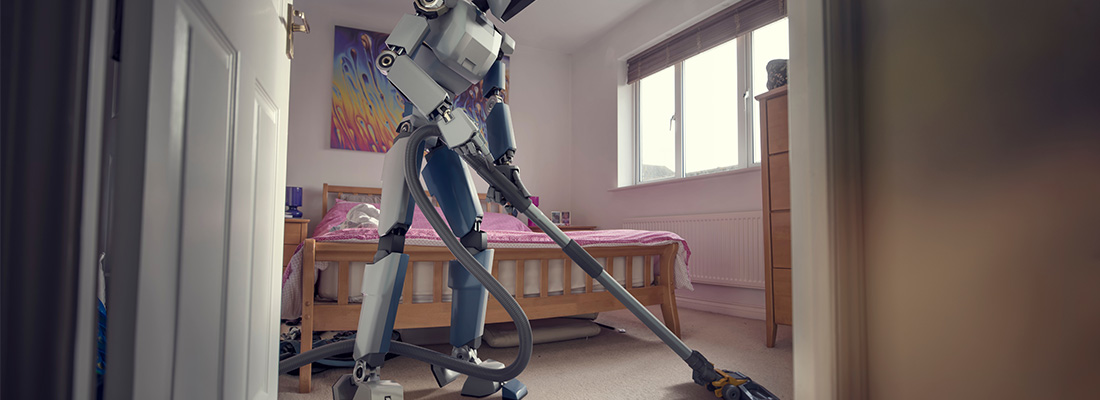In 2023, the cleaning industry will continue to develop as we see professional cleaning trends expand from previous years, and new cleaning trends emerge. Our new report, Cleaning in Focus 2023 takes an in-depth look at cleaning trends in 2023 and can be downloaded here: Interclean's Cleaning in Focus 2023.
In places around the world, COVID continues to be a concern, while an emphasis on elevated cleaning and hygiene persists everywhere and cleaning trends must adapt to these revised standards. In addition to post-pandemic considerations, we anticipate four core areas for cleaning trends in 2023: Sustainability, Technology, Recruitment and Costs.
1. Greener Cleaning Trends
Sustainability is an important consideration in the cleaning industry, as it intersects with many different aspects of the business, from the materials and processes used to produce cleaning products to the disposal of those products after use.
Consumers are increasingly willing to pay a premium for products that demonstrate sustainable credentials, and businesses are looking for ways to reduce their environmental impact. Key areas of focus include reducing plastic waste, increasing the reuse of products, and emphasizing product durability.
In addition to these considerations, businesses may also need to consider the sustainability of their distribution and manufacturing processes, as well as their overall corporate social responsibility. To be truly sustainable, businesses need to consider the full lifecycle of their products and find ways to minimize their impact on the environment.
2. Technologically Advanced Cleaning
Even in the years before the pandemic, we all observed cleaning trends centred around the ongoing development of cleaning technology. Now, with heightened cleaning standards, staffing issues and sustainability amongst the cleaning trends of 2023, has the time finally come for mass adoption?
Robotic cleaning technology can bring a number of benefits to facilities, including improved quality and availability of cleaning, efficiency, and data-driven decision making. Technology can also free up human staff to focus on more important or meaningful tasks.
However, adoption of robotic cleaning has been slow, in part due to the initial investment required and ongoing maintenance costs. Leasing options and smart building construction can help alleviate some of these costs.
As more people encounter and become familiar with robotic cleaning in their daily lives, it is likely that the adoption of such technologies will increase. Ultimately, the use of robotics in cleaning can improve efficiency, hygiene and sustainability, while also offering a collaborative tool for human staff.
3. Professional Cleaning staff shortage
Observations of staff shortages and issues with retention will be ongoing cleaning trends in 2023.
To address these issues, businesses may look to other cleaning trends and consider implementing technology, such as robots and automation, to assist with cleaning tasks, reducing the need for human labour and potentially improving retention by offering training and professional development opportunities for staff.
Additionally, businesses may focus on creating a more positive perception of cleaning work by emphasizing the importance of custodial staff as essential workers. By offering ergonomic equipment and ongoing training, businesses can also help improve the physical and mental well-being of their cleaning staff, potentially leading to better retention.
Overall, addressing staffing issues may require a combination of technological solutions and efforts to improve the perception and working conditions of custodial staff, but will continue to be a professional cleaning trend for the foreseeable future.
4. Increasing Costs
It’s no surprise that one of the most prominent professional cleaning trends this year will be around the increasing costs faced by businesses.
Every point, from raw manufacture to sales, is going to be touched by a variety of issues.
The war in Ukraine has reduced raw materials from Russia, including some of the key components for technology and transport infrastructure, while also impacting on the energy costs experienced by businesses and citizens alike.
Inflation and the ongoing cost of living continues to impact on purchase decisions privately and professionally across all industries, and while governments or authoritative bodies can move cash from elsewhere to cover support, there are only so many costs a business can pass on to customers.
The Professional Cleaning Trends Nexus
When we look at cleaning trends most years, we can see the frontrunner, the one trend that’s going to take more attention than the others, but cleaning trends in 2023 feel much more interdependent.
None of the topics covered here stands on it’s own. Technology must be sustainable and cost-effective to succeed. Staff retention can be built up by better technology and sustainable credentials that attract younger demographics. Cost concerns that will mandate the efficiencies that come from better, greener cleaning technology.
Throughout the year we’ll continue to check-in on the stories and developments tin these professional cleaning trends and more. In the meantime you can download our Cleaning in Focus 2023 report for a more thorough examination of the issues discussed in this blog.
Download Interclean's Cleaning in Focus 2023 (full report).






